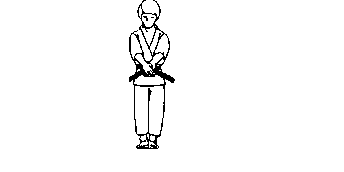

Why Karate?

I come to you with only Karate, Empty Hands.
I have no weapons, but should I be forced to defend myself, my principles, or my honor,
should it be a matter of life or death, of right or wrong, then here are my weapons, Karate, my Empty Hands.
Kara is the Japanese word for empty while te means hand and do translates as the way, or path. So Karate-do is The Way of the Empty Hand. It is a martial art in which the ultimate purpose is not to seek to win, but to work towards perfection of character, self-control and self-discipline by the accumulation of experience through training. It is also a form of self-defence using all parts of the body which, by hard and systematic training, become effective and powerful weapons. Karate encompasses whole body movements which develop balance, flexibility, co-ordination, speed and power. This is achieved through the constant practice of the basic movements (Kihon) which, due to their variety and complexity, can be considered as a complete art form themselves.
Shotokan Karate originated in Okinawa, a small island south
of Japan. It was popularized in Japan by Gichin Funakoshi in the
1950s.
Shotokan Karate is a traditional martial art. This means that
improvements in character and mental discipline are as important
as physical skill, if not more so. Shotokan Karate is meant to
be accessible to all, including, women, children, and those
without great athletic ability. JKA Kuwait Dojo offers a caring,
safe environment where everyone can learn the art of karate. Its
practice leads to:
• Muscular and Aerobic fitness
• Body alignment, balance and movement
• Increased perceptual awareness
• Stress management
• Concentration, confidence and discipline
Shotokan Karate is a traditional Japanese style of Karate. It combines both mental and physical training to refine the character of its students. Karate means "empty hand" as translated from its Chinese characters. As a result, Karate uses no weapons in its training, relying on the hands, feet, and body of its participants.
The founder of modern Karate, Gichin Funakoshi from Okinawa, first demonstrated his powers to the Japanese public in 1922 in Tokyo. Funakoshi established his first Dojo in Japan in 1936. The Japan Karate Association (JKA) was created in 1955 with Funakoshi as the Chief Instructor. The name Shotokan is derived from Funakoshi'ss pen-name, Shoto and the Japanese word for hall, kan.
Master Funakoshi's precept says that The ultimate aim of karate lies not in victory or defeat, but in the perfection of the character of its participants. Karate is beneficial both physically and mentally: you will improve your physical fitness and flexibility, you will have a better understanding of body dynamics, a greater awareness of your surroundings, a greater ability to defend yourself, and the ability to control your emotions in high pressure situations. Most of all, Karate will build your self-confidence in everyday life.
We are affiliated with Japan Karate Association/World Federation, all the grades and ranks you get, are recognized worldwide.
We are on a friendly
environment, no stress no hates, speak up we hear you..
|